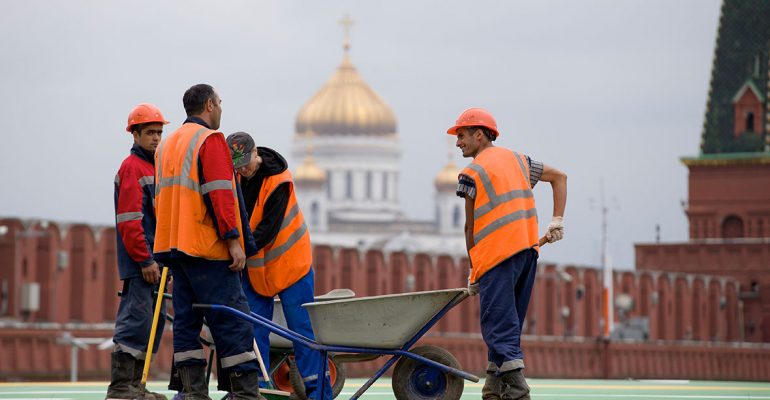On the 16 July the Central Asia Program of the Institute for European, Russian and Eurasian Studies (IERES) will organize a webinar “The COVID-19 Pandemic and Central Asian Migrants in Russia”.
The Covid-19 pandemic revealed how Central Asian migrants in Russia are vulnerable to both the spread of the virus and the impact it causes on their livelihoods. Its effects are particularly visible in the everyday living and working conditions of migrants, including for those migrants who are currently serving prison sentences in Russian penal institutions and those who had to bury their relatives/friends/compatriots. On the event speakers will discuss the impact of the Covid-19 pandemic on vulnerable communities of Central Asians in Russia and their remittance-dependent home countries.
Speakers
Sherzod Eraliev is a postdoctoral researcher at Aleksanteri Institute for Russian, East European and Eurasian Studies, the University of Helsinki. He holds a doctoral degree from the University of Tsukuba, Japan (2018) and a master’s degree from the University of Manchester, the UK (2009). Sherzod Eraliev was a visiting fellow at the Central Asia Program of the Institute for European, Russian and Eurasian Studies (IERES), the George Washington University in 2019.
Juliette Cleuziou is an assistant professor in anthropology at the University Lumière-Lyon 2 (France). Her work in Tajikistan has been focusing on kinship, marriage and the impact of migration on family life and reproduction, while her fieldwork in Russia has been focusing on diasporic networks of mutual help among Tajikistani migrants, and transnational relations between Russia and Tajikistan. She is currently coordinating a collective research project (REFPoM) on migrants' access to the health care system in Russia and their attitude towards the risk of death, which also addresses the care collectively provided to bodies of migrants who have died in Russia (burial on the spot, repatriation, mutual aid funds, etc.).
Rustam Urinboyev, Associate Professor in the Department of Sociology of Law at Lund University and Senior Researcher within the ERC-funded “GulagEchoes” project in the Aleksanteri Institute, University of Helsinki. Rustam works at the intersection of sociology of law and ethnography, studying migration, corruption, governance and penal institutions in the context of Russia and Central Asia. His current research focuses on (1) migration, shadow economy and informal legal orders in hybrid political regimes, (2) corruption, informality and legal pluralism in Uzbekistan, and (c) informal hierarchies, religious orders and ethnic identities in Russian penal institutions. He is the author of Migration and Hybrid Political Regimes: Navigating the Legal Landscape in Russia (2020), published by the University of California Press.
When Thursday, July 16, 2020, 10:00 AM – 11:30 AM (New York Time)




